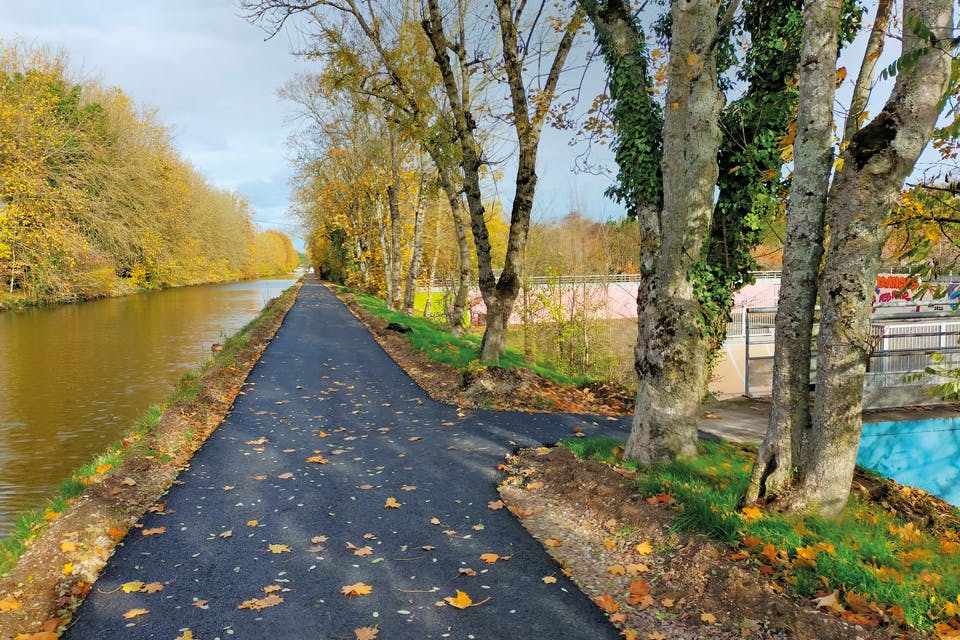
A cycle route in the Marne
_ As part of their own contribution to the development of low-carbon urban mobility, local subsidiaries took part in the construction or extension of tramway lines in the cities of Bordeaux, Angers (Maine-et-Loire) and Grenoble, and in the Greater Paris area (T3 ring line, T10 between Antony and Clamart, west of Paris, T12 between Massy and Évry, in the outer suburbs south of Paris), and in the construction of bicycle paths in the Greater Toulouse area as well as along the Seine à Vélo cycle route and the long-distance cycle route 52 between Moncetz-Longevas and Vitry-le-François in the Marne, north-east France. They also worked on a growing number of climate change adaptation projects (combating urban heat islands, developing parks and gardens, soil unsealing, Oasis-type school playgrounds) and deployed Power Road®, a pavement technology that produces thermal energy, in the towns of Saint-Pol-de-Léon (Finistère), Tarbes (Hautes-Pyrénées) and Saint-Lô (Manche).
VINCI Construction continued to apply circular economy principles to the production of construction materials that it later uses on projects. A leader in its market, it produces 89 million tonnes of aggregate a year and is aiming to double its output of aggregates from recycled materials – which in 2022 accounted for 18% of total production – by 2030. The 144 Granulat+ bases across France make up the largest network of facilities recovering and recycling mineral waste from the construction and manufacturing industries in the country.
